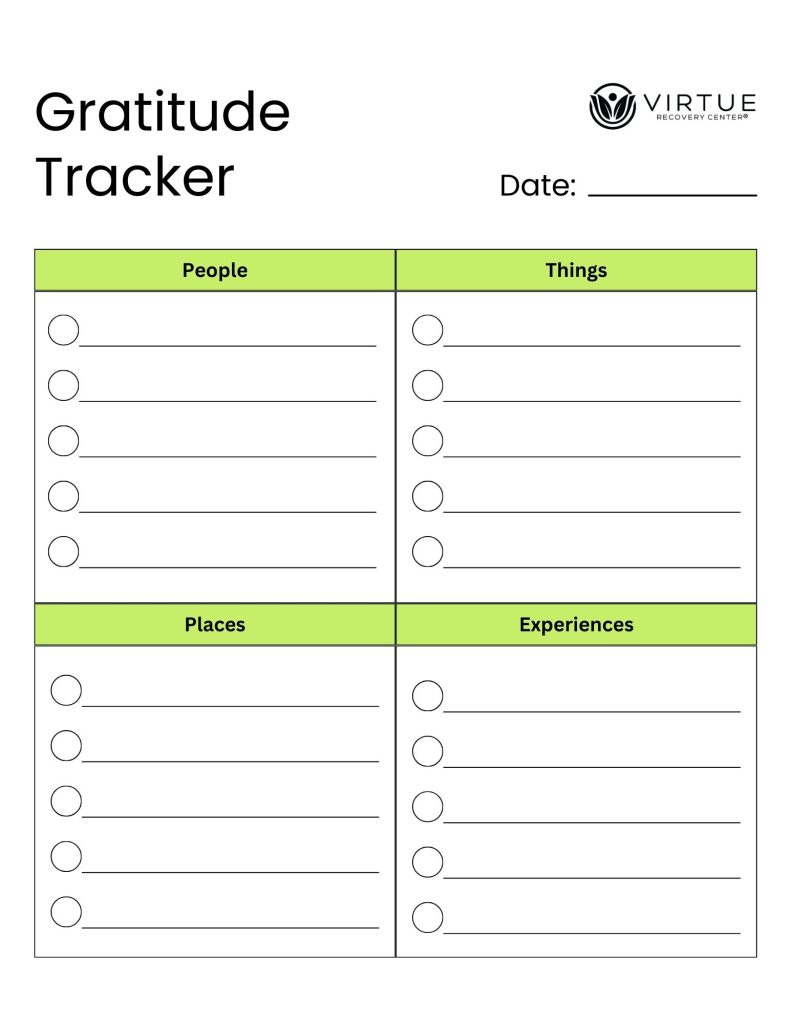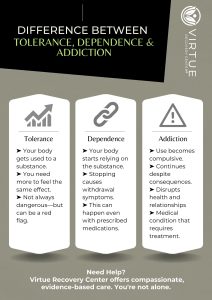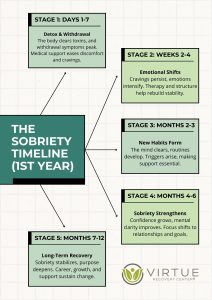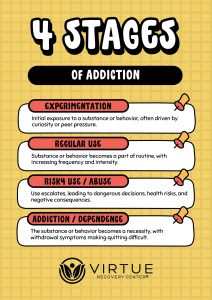Key Takeaways
- Gratitude is a powerful tool that can support sobriety and long-term addiction recovery.
- Practicing gratitude helps reduce negative thoughts and improve mental and physical health.
- Simple activities like journaling or using a gratitude tracker can make a big difference.
Introduction
Recovery from addiction is a long and challenging journey, but it is also full of opportunities for growth and healing. One tool that can make this journey easier and more meaningful is gratitude. Gratitude is recognizing and appreciating the good things in life, no matter how small. Practicing gratitude can help individuals shift their focus from what they have lost to what they can gain, fostering a more positive mindset. Additionally, making amends in addiction recovery plays a crucial role in this process, as it allows individuals to repair relationships and take responsibility for their past actions. This act of reconciliation not only aids in healing personal connections but also reinforces a sense of self-worth and purpose in the recovery journey.
In addiction recovery, gratitude has been shown to reduce stress, increase happiness, and help individuals maintain their sobriety. This article explores the role of gratitude in recovery, its benefits, and practical ways to incorporate it into daily life.
What is Gratitude, and Why Does It Matter in Recovery?
Gratitude is the practice of noticing and appreciating the positive things in life. It could be as simple as feeling thankful for a sunny day, a kind word from a friend, or a good night’s sleep.
In addiction recovery, gratitude is important in shifting focus away from negative thought patterns. Many people in recovery struggle with feelings of guilt, shame, or regret from their past substance use. Gratitude helps replace these emotions with positivity and hope for the future.
Research shows that practicing gratitude improves mental health and increases emotional resilience. It helps individuals in recovery stay grounded, focused, and motivated to maintain their sobriety.
The Benefits of Gratitude in Addiction Recovery
Improved Mental and Emotional Health
Gratitude helps reduce feelings of anxiety, depression, and stress. When people focus on what they’re grateful for, breaking free from negative thought patterns is more manageable. This shift in perspective can boost happiness and improve emotional well-being.
Better Physical Health
Studies have found that gratitude improves sleep, lowers blood pressure, and boosts the immune system. For individuals in recovery, these physical health benefits can support their overall healing and make them feel stronger and more energized.
Stronger Relationships
Gratitude fosters connection. Thanks to others—whether a friend, family member, or counselor—helps rebuild trust and strengthen bonds. This sense of community is vital for people in recovery who may feel isolated or disconnected from their loved ones.
Simple Ways to Practice Gratitude in Recovery
Incorporating gratitude into daily life doesn’t have to be complicated. Small, consistent actions can make a significant impact.
Gratitude Journaling
Writing down three things you’re grateful for each day is one of the easiest and most effective ways to practice gratitude. These could be people, moments, or experiences that brought you joy or comfort.
Expressing Gratitude to Others
Take time to thank the people who support you. It could be as simple as saying “thank you” to a friend or writing a note of appreciation to a loved one.
Mindfulness and Reflection
Spend a few minutes each day reflecting on the positive things in your life. This can be done during quiet moments, like a walk or a meditation session.
Sharing Gratitude in Recovery Programs
Many recovery programs encourage participants to share their gratitude during group meetings. This not only reinforces positivity but also inspires others on their recovery journey.
The Role of Gratitude in Supporting Long-Term Sobriety
Gratitude plays an essential role in helping individuals maintain long-term sobriety. By focusing on the positives, people in recovery can redirect their attention away from cravings, stress, or other triggers.
When challenges arise, gratitude provides a way to stay motivated and resilient. Instead of dwelling on difficulties, individuals can draw strength from what they are grateful for, whether it’s a supportive friend, a milestone in recovery, or their progress.
Over time, gratitude becomes a habit—a natural way of viewing the world that makes long-term sobriety feel achievable and rewarding.
Gratitude Tracker Worksheet
One practical way to stay consistent with gratitude is by using a gratitude tracker. This simple worksheet helps you organize your thoughts and reflect on what you’re grateful for.
The tracker includes four sections:
- People: List those who have supported or inspired you in your recovery journey.
- Things: Write down physical items or comforts that bring you joy, like a warm cup of coffee or a favorite book.
- Places: Think of locations that make you feel calm, safe, or happy, like a park or your home.
- Experiences: Reflect on moments or activities that positively impacted you, like attending a recovery meeting or spending time with loved ones.
Using the gratitude tracker regularly can help you stay focused on the positives and reinforce your recovery goals.

Conclusion
Gratitude is more than just a nice idea—it’s a powerful tool for supporting long-term recovery from addiction. By focusing on the good things in life, people in recovery can improve their mental and physical health, strengthen relationships, and stay motivated on their journey to sobriety.
Incorporating simple practices like journaling, expressing thanks, or using a gratitude tracker can make a big difference. If you or someone you love is struggling with addiction, know that help is available.
Contact Virtue Recovery Las Vegas at 866-520-2861 today for compassionate care and personalized treatment. Together, we can help you build a brighter, sober future.
FAQs The Role of Gratitude Practices to Foster Lifelong Recovery
What is gratitude, and why is it important in recovery?
Gratitude is the practice of noticing and appreciating the good things in life. It helps people in recovery focus on positivity and reduces negative thought patterns.
How can I practice gratitude during recovery?
You can practice gratitude by journaling, reflecting on your blessings, and expressing appreciation to those who support you.
What are the benefits of gratitude for addiction recovery?
Gratitude improves mental health, strengthens relationships, and helps people maintain a positive mindset during recovery.
How does a gratitude tracker work?
A gratitude tracker is a worksheet on which you list people, places, things, and experiences for which you’re grateful. It helps you stay focused on the positive aspects of life.
Can gratitude help with long-term sobriety?
Yes, gratitude fosters resilience and positivity, making staying sober and focused on recovery goals easier.
Can gratitude journaling help with alcohol addiction treatment?
Yes, gratitude journaling helps individuals in alcohol addiction treatment focus on positive aspects of their lives, reducing stress, improving emotional regulation, and promoting a sense of hope and purpose in recovery.
What does AA say about gratitude?
AA emphasizes gratitude as a cornerstone of recovery, encouraging individuals to focus on their progress, appreciate the support of others, and find joy in sobriety to strengthen their commitment to staying sober.
How do I show gratitude for my recovery?
You can show gratitude for your recovery by reflecting on your journey, thanking those who support you, helping others recover, and actively practicing mindfulness or gratitude journaling.
What are the 7 benefits of gratitude?
Gratitude improves mental health, boosts emotional resilience, strengthens relationships, reduces stress, increases optimism, improves physical health, and enhances happiness.
How does gratitude function as an emotional support system?
Gratitude shifts focus from challenges to blessings, creating a positive mindset that helps manage stress and emotional struggles by fostering a sense of contentment and emotional balance.
How does gratitude shift perspective from negativity?
Gratitude reframes negative experiences by encouraging individuals to recognize the positive aspects of their lives, creating a more hopeful and optimistic outlook.
How does gratitude support recovery during difficult periods?
During tough times, gratitude helps individuals focus on progress, maintain hope, and draw strength from the support and joyous moments in their journey, keeping them motivated to stay on track.
What does evidence-based research say about gratitude’s benefits?
Research shows that gratitude improves mental health, reduces symptoms of anxiety and depression, enhances sleep quality, and strengthens social connections, making it a valuable tool for emotional well-being and recovery.
What is the role of gratitude during holidays or relapses?
Gratitude during holidays or relapses helps individuals stay grounded by focusing on their support, progress, and opportunities to learn and grow, fostering resilience and recovery.
Resources
https://pmc.ncbi.nlm.nih.gov/articles/PMC5501091/












